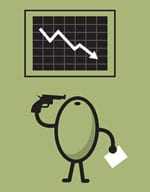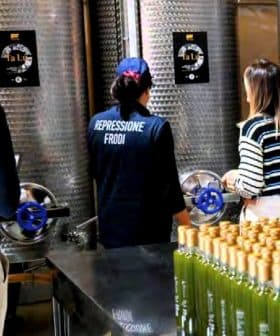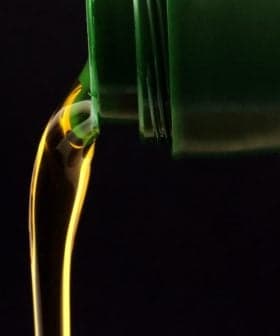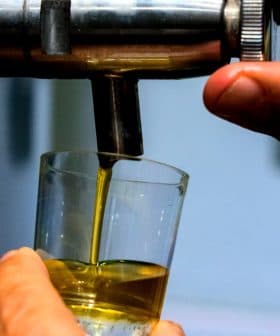Importers Call NYT Piece 'Defamatory', Mueller 'Dismayed'
The North American Olive Oil Association criticized the New York Times for a piece on Italian olive oil adulteration, while author Tom Mueller expressed dismay at being cited as the source. The Times published a slideshow on olive oil fraud in Italy, citing Mueller as the sole source, which has been shared widely and criticized for inaccuracies by industry experts.
See Also:NY Times Olive Oil Fraud Infographic Timeline
A trade group of American olive oil importers blasted the New York Times for a “defamatory and inaccurate” piece on olive oil adulteration in Italy. And Extra Virginity author Tom Mueller said he was “dismayed” that he was cited as the article’s source.
I had no input on content, fact-checking, etc. Wish I had.
In a letter to the New York Times Public Editor, Eryn Balch, executive vice president of the North American Olive Oil Association, wrote: “I’m shocked by this defamatory piece about Italian olive oil adulteration. This piece is riddled with false statements presented as though they are fact.”
“With the lines between fact-based journalism and anecdotal story-telling being blurred through online media more and more, readers need to be able to rely on credible institutions like The New York Times to separate the two,” Balch wrote. “By failing to review the factual statements made in this piece, your trusted brand has become an outlet for self-serving marketeers.”

The New York Times offered a slideshow titled “Extra Virgin Suicide,” that presented 15 cards on the process of large-scale adulteration in the olive oil industry in Italy. The feature was published Saturday by New York Times illustrator Nicholas Blechman and cites Mueller as its only source.
Bechman is the art director of The New York Times Book Review. He is not a Times reporter.
In an email, Mueller said he “knew nothing” about the Times piece and was “dismayed” that his name was attached. “The author and I spoke briefly by phone, and we exchanged an email, in both of which I gave him general info on the olive oil industry, and pointed him in the direction of more info.”
However, Mueller congratulated Blechman in a tweet shortly after the article’s publication:

By now, the piece has been shared around the world and picked up by countless online publications. On Sunday, the New York Times website listed it third among its most emailed articles.

The graphic, which the New York Times called “interactive” despite having no way for readers to comment, contained several statements that have alarmed industry experts with their inaccuracies and fueled yet another debate about an industry at least as rife with misinformation as it is with fraud.
One of the cards in the series said, “approximately 69 percent of the olive oil for sale in the U.S. is doctored.” It presumably referred to the 2010 U.C. Davis study that found samples of ten imported brands labeled extra virgin in three California supermarkets (not exactly a national sampling) to be substandard — not that they were intentionally “doctored.”
Another illustration implied that the Italian police rely solely on sensory testing, dismissing chemical analyses as “easy to fake.” And “many” producers in Italy, with their refineries “raided regularly,” are nevertheless able to avoid prosecution, according to the Times, thanks to their “connections with powerful politicians” — a stereotype experts are calling overblown and out of touch.
Bechman seems to have come under some fire for the piece, tweeting that he was receiving letters from Italian chemists while reminding readers, “I’m just an illustrator.”
Getting letters on the nuclear magnetic resonance of olive oil from Italian chemists. Basta! I am just an illustrator.
— Nicholas Blechman (@nblechman) January 28, 2014
In an earlier tweet, Blechman thanked Mueller and three other illustrators for their help with the project.
The New York Times has not responded to a request for comment.
The New York Times Olive Oil Fraud Infographic Timeline








